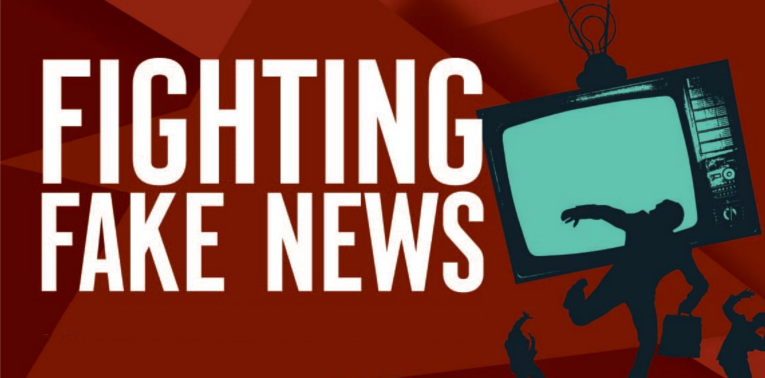Saturday, June 8, 2019
We Need to Fight Fake News
In the US presidential election (2016), the world was shocked by the fact that fake news was viewed on the Internet more than real news. Experts in the world at that time said the number of clicks would be directly linked to money, and that fake news would never disappear because of the "confirmation bias", people are looking for news that suits their tastes. They also predicted that this would only expand with the expansion of digital capitalism. So begins the column In the Eyes of the Believer in the Catholic Times by a media expert.
The English Oxford dictionary calls this the 'post-truth' era. Pope Francis continues to point out the evils surrounding "fake news," calling for countermeasures since fake news undermines community spirit and democracy.
Over the next few years, the problems will be magnified. The digital media platform has taken its place in people's everyday life and continues rapidly to develop and 'false truth' will also spread. Fake news is a malicious variant of hate content that is harming human society.
In March, 51 people were killed in a shooting incident in Christchurch, New Zealand. At that time, the perpetrator shocked the world by broadcasting the crime scenes through the Facebook streaming service.
Extreme and violent hate speech is mainly about race, nationality, religion, and sexual identity. In India, where societal and cultural conflicts are serious, fake news and hate speech is spread in social media, assaults, and murders continue. It is no exaggeration to say that the general election in India, which took place on April 11th with the participation of 900 million voters (10% of the world's population) for six weeks, was a war against hate speech.
In Europe, anti-refugees and anti-EU right-wing extremists are raising their voices, and racial expressions of aversion are common. In Germany, foreign hate crimes and anti-Semitic crimes are increasing.
In Korea, we have the same problems. The number of requests for the correction of harmful information (hate speech, discrimination, abuse, and profanity) has increased from 1,982 in 2015 to 3,900 in 2018. When you enter YouTube, there is a lot of extreme hate speech about Yemen refugees, Chinese compatriots, social underdogs, and sexual minorities.
In this regard, YouTube is more dangerous. This is because it is tailored to 'taste and beliefs' rather than objective facts. Nowadays, media users are showing great use for YouTube, and Koreans are especially enthusiastic. In this respect, our country can not say hate and crime are not related.
The legal restrictions on the expression of hate speech don't come easy because they can violate the 'freedom of expression' ( almost sacrosanct in the United States). However, Germany, which knows the results of hate speech has enacted the Network Implementation Act and is implementing it strongly. Singapore and Australia, and a growing number of other countries are responding. In Korea, which has been dealing with defamation changes in the penal code, there are more opinions on cracking down on fake news, repulsive expression and the regulating of digital platform companies.
Above all, media literacy (education) is essential. Fake news became more and more urgent as it became a malicious variant of hate news. Like the old battle against illiteracy, media literacy education must be carried out by the government, as well as by various institutions and organizations. Reading the signs of the times we all need to confront hatred in the media. The church, which has no related programs yet, should also get involved in the work.
Subscribe to:
Comments (Atom)
